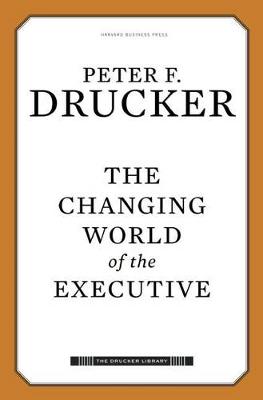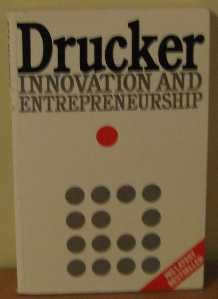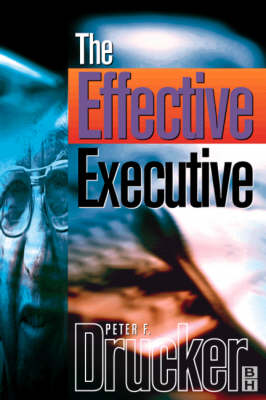Drucker
4 total works
Peter Drucker won wide acclaim as the founder of the discipline of management and as the most influential thinker and writer on modern organizations. The wealth of essays he published at the height of his career are surprisingly relevant today, even prescient. His writings are still strongly informing the practice of management, whether in corporations, not-for-profit entities, or government agencies.
The Changing World of the Executive brings together forty of Drucker's essays - most of them originally published in the Wall Street Journal from 1975 to 1982. While covering a range of topics, the essays collectively seek to answer a question that's as urgent as ever: "How can managers better understand and fulfill the new duties and responsibilities created by their constantly transforming world?"
Each selection is as relevant and thought-provoking today as it was when first written. Reflecting the author's international viewpoint, an entire nine-essay section is devoted to emerging developments in global business and their implications for the executive's role.
Forward-thinking and insightful, The Changing World of the Executive delivers a treasure trove of wisdom from one of the world's most renowned management thinkers.
The Changing World of the Executive brings together forty of Drucker's essays - most of them originally published in the Wall Street Journal from 1975 to 1982. While covering a range of topics, the essays collectively seek to answer a question that's as urgent as ever: "How can managers better understand and fulfill the new duties and responsibilities created by their constantly transforming world?"
Each selection is as relevant and thought-provoking today as it was when first written. Reflecting the author's international viewpoint, an entire nine-essay section is devoted to emerging developments in global business and their implications for the executive's role.
Forward-thinking and insightful, The Changing World of the Executive delivers a treasure trove of wisdom from one of the world's most renowned management thinkers.
There are already thousands of managers who are avid readers of Peter Drucker's books - this major work will establish many more. "Innovation and Entrepreneurship" deals with 'what, when and why'; with policies and decisions; opportunities and risks, structures and strategies; staffing, compensation and rewards. In addition to managers in all types of business, lecturers and students of management and business studies will find this a revealing and exciting work. Highly original in approach, it is nevertheless a practical and illuminating study of a major, but hitherto neglected area, crucial for today's world. It is practical and illuminating. It is written by one of the world's leading management gurus. It includes a new preface which relates the book to managers in the '90s.
The measure of the executive, Peter Drucker reminds us, is the ability to 'get the right things done'. Usually, this involves doing what other people have overlooked, as well as avoiding what is unproductive. He identifies five talents as essential to effectiveness, and these can be learned; in fact, they must be learned just as scales must be mastered by every piano student regardless of his natural gifts. Intelligence, imagination and knowledge may all be wasted in an executive job without the acquired habits of mind that convert these into results. One of the talents is the management of time. Another is choosing what to contribute to the particular organization. A third is knowing where and how to apply your strength to best effect. Fourth is setting up the right priorities. And all of them must be knitted together by effective decision-making. How these can be developed forms the main body of the book. The author ranges widely through the annals of business and government to demonstrate the distinctive skill of the executive. He turns familiar experience upside down to see it in new perspective.
Written by one of the world's leading management gurus, the book is full of surprises, with its fresh insights into old and seemingly trite situations. It is the most widely read book by Peter Drucker.
Written by one of the world's leading management gurus, the book is full of surprises, with its fresh insights into old and seemingly trite situations. It is the most widely read book by Peter Drucker.
The relationship of humans to technology and management is an ever-growing theme in today's world of ubiquitous mobile devices, constant Internet access, and omnipresent digital business tools. Fifty years ago Peter F. Drucker was already at the forefront of these questions, probing the ways in which management and technology struggle with the shared task of making us more productive. His thinking on how management and technology affect quality of life, what efficiency means versus productivity, and whether management can ever be a true science is as relevant today as it was then.
These twelve essays exhibit, as do all Peter Drucker's writings, crisp reasoning, projection and analysis of short-term realities and examination of long-range goals and possibilities, and a unique voice that makes all these ideas accessible.
These twelve essays exhibit, as do all Peter Drucker's writings, crisp reasoning, projection and analysis of short-term realities and examination of long-range goals and possibilities, and a unique voice that makes all these ideas accessible.



